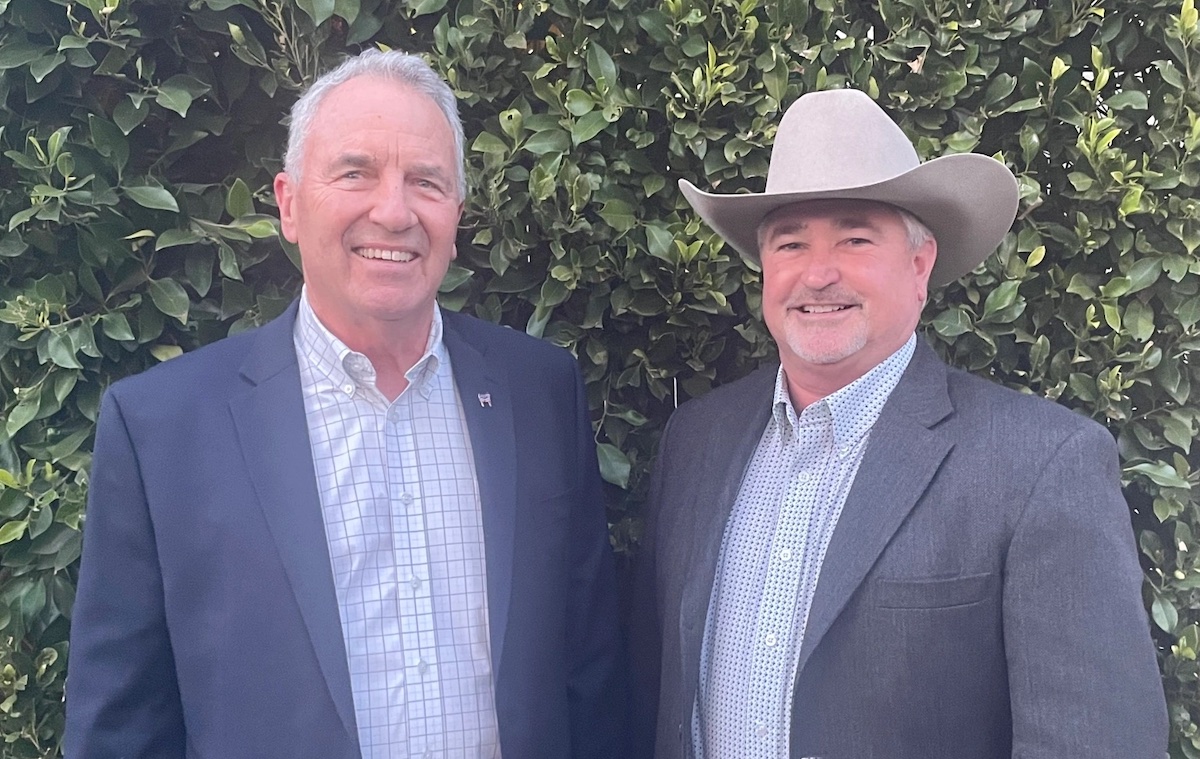Society Matters | California Rangeland Trust Celebrates 25 Years of Saving Ranch Land
Nonprofit Has Helped Save 90 Ranches and More Than 371,000 Acres

On February 16, the California Rangeland Trust (CRT) held a gathering for about 165 guests at the Santa Barbara Club, where they celebrated this nonprofit’s 25 years of work obtaining conservation easements from ranchers to conserve precious ranch land. The easements allow ranchers to continue their operations, but limit specified development rights in perpetuity.
Guests enjoyed an extended reception on the grounds of the club, with a gourmet taco buffet and live music, before being seated inside for the program. Dick Gibford kicked off the program with an entertaining cowboy poetry reading.
Board Chair Andy Mills welcomed guests and reflected on how in the early years, CRT’s outreach to ranchers was met with considerable resistance. At that time, Mills noted, CRT also faced the task of educating state leaders that cattle ranchers are the best stewards of their land. Easements were obtained, slowly at first, and to date, CRT remarkably has helped conserve 90 ranches encompassing 371,000 acres. Five of those ranches, totaling 17,342 acres, are in S.B. County.
CEO Michael Delbar shared the recent success of CRT’s largest private fundraising effort — raising $1 million to conserve the Spanish Ranch in New Cuyama, which along with public funding, will enable an easement transaction to close hopefully by the end of this year.
Delbar noted the importance of celebrating CRT’s successes, but quickly turned to pointing out how many ranchers are fighting every day to maintain viable agricultural businesses, that “we are fighting for our future by keeping ranchers ranching.”
Sign up for Indy Today to receive fresh news from Independent.com, in your inbox, every morning.
A panel discussion followed with first-generation ranchers Richard and Sharon Kline from Rancho San Lorenzo in Los Alamos and with seventh-generation rancher Elizabeth Poett from Rancho San Julian in Lompoc (daughter of S.B. Independent Editor-in-Chief Marianne Partridge).
Richard Kline shared how CRT staff took them hand-in-hand to get a conservation easement and that they couldn’t be happier with the result. Sharon explained how they were lucky to have a vernal pond that with rain became a 10-acre refuge for tiger salamanders. Given its endangered species status, the salamanders caused the government to look more favorably on the easement application.
According to Richard Kline, the dream of having a ranch is all too easily a nightmare. He pointed to the challenges of having adequate water, grass to feed the cattle, property needing repairs, and vet bills to pay. Easements help with all the expenses, Klein explained, by providing financial assistance and a tax break, allowing ranches to remain in operation, which benefits ranchers and the community, today and into the future.
Poett, who was raised on the ranch, shared that there are many challenges in working on the ranch with a large family, but her parents instilled in her the importance of family, the importance of the ranch, and making it all work. “We don’t have a plumber; we are the plumber,” Poett related, “and we have to weld and fix the fence and make it work, from generation to generation, including working with our parents, our cousins, and our children.” It’s through working together that ranching stays from generation to generation, Poett said.
CRT currently has 90 ranching families awaiting funding for conservation easements. A large chunk of funding comes from federal and state sources, but CRT also relies heavily on private funding to meet agency matching requirements and to otherwise supplement government funding.
For more info, go to http://rangelandtrust.org.








You must be logged in to post a comment.